Are you feeling overlooked or unfairly treated at work? Workplace discrimination can take various forms, from subtle biases to outright exclusion, and it's crucial to address it effectively. In this article, we'll guide you through a comprehensive letter template that will help you articulate your complaint clearly and assertively. Ready to take the next step towards a more equitable workplace? Let's dive in!
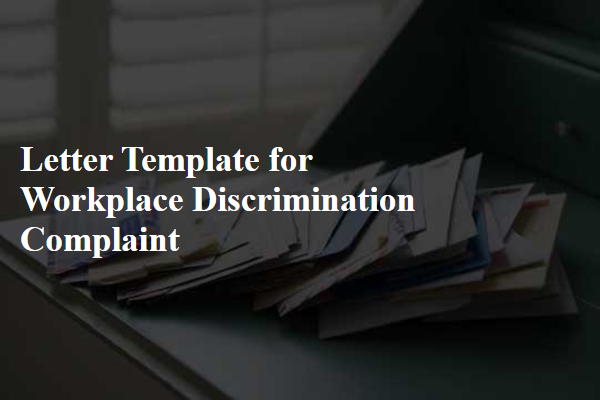
Clear identification of parties involved
In a workplace discrimination complaint, clear identification of parties involved is crucial for an effective resolution process. The complainant should be specified, including their full name, position, and department within the organization. The respondent should also be clearly identified, detailing their role and relationship to the complainant (e.g., supervisor, coworker). Relevant witnesses may also be included, along with their contact information and positions, to provide context and support for the allegations. The inclusion of dates of incidents, specific discriminatory actions, and other relevant details about the workplace environment enhances the clarity and impacts the seriousness of the complaint. Documenting the company policy regarding discrimination can frame the complaint within the organization's guidelines, further underscoring the importance of addressing the issue.
Specific description of discriminatory incidents
Workplace discrimination can manifest through various incidents, such as biased remarks made by supervisors during team meetings, inappropriate jokes that target specific demographic groups, or unequal distribution of tasks and responsibilities based on race, gender, or age. In one instance, an employee from a minority group reported being excluded from important project discussions, while their colleagues were consistently invited, undermining their professional growth. Another situation involved a manager making derogatory comments about a female team member's capability during performance evaluations, contradicting her positive work history and feedback from peers. These incidents demonstrate a pattern of discriminatory behavior that undermines workplace inclusivity and morale, ultimately impacting employee engagement and overall productivity within the organization.
Reference to relevant workplace policies and laws
Workplace discrimination often violates specific laws, such as Title VII of the Civil Rights Act of 1964, which prohibits employment discrimination based on race, color, religion, sex, or national origin. Organizations typically implement internal discrimination policies to uphold a fair work environment, emphasizing employee rights and procedures for reporting grievances. Such policies might include the Equal Employment Opportunity (EEO) guidelines, which empower employees to seek remedies for discriminatory practices. Local and state laws may also provide additional protections, requiring employers to address claims swiftly and confidentially. Understanding these frameworks is crucial in documenting incidents, ensuring compliance, and fostering a respectful workplace culture.
Request for specific action or resolution
Workplace discrimination can significantly impact employee morale and productivity. Discrimination incidents may involve gender bias, ageism, or racial inequality, creating a hostile working environment. Employees affected by discrimination may experience psychological distress, leading to decreased job satisfaction and increased turnover rates. In 2021, the U.S. Equal Employment Opportunity Commission (EEOC) received over 61,000 discrimination claims, highlighting the need for effective resolution methods. Organizations are encouraged to implement clear reporting procedures and create an inclusive workplace culture to address these critical issues. Promoting diversity training can also aid in fostering understanding and respect among employees, ultimately reducing the risk of discrimination.
Assurance of confidentiality and non-retaliation
The workplace discrimination complaint process emphasizes the importance of confidentiality and protection against retaliation. Employees are encouraged to report incidents of discrimination, including harassment based on race, gender, age, or disability, without fear of exposure. Confidentiality ensures that the details of the complaint remain private, safeguarding the identity of the complainant. Non-retaliation policies protect employees from adverse actions, such as demotion or termination, that may result from their participation in the complaint process. Organizations often implement training and awareness programs to educate staff about these protections, ensuring a supportive atmosphere that promotes equality and respect within the workplace.

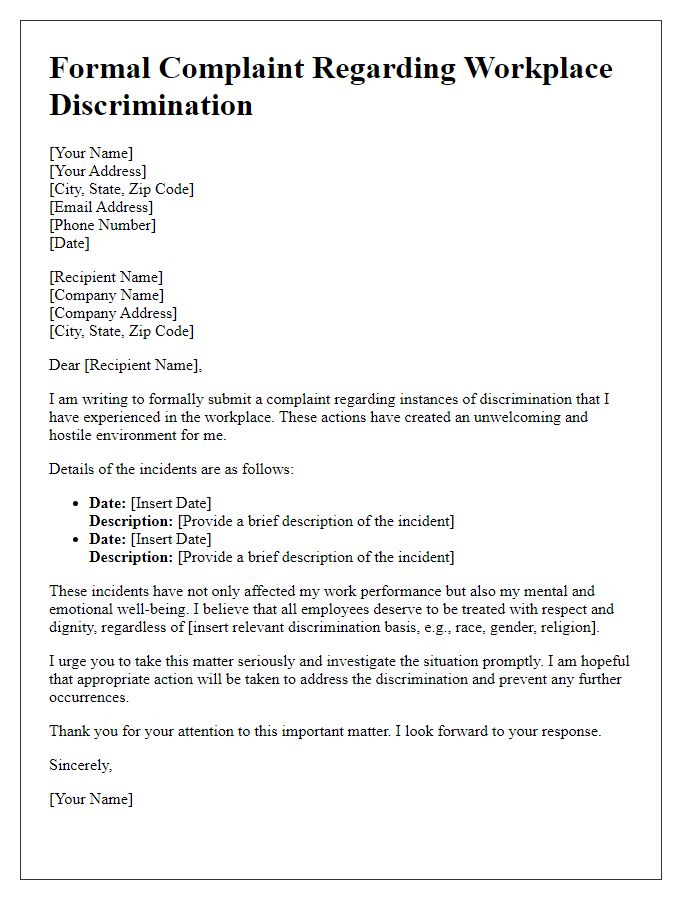
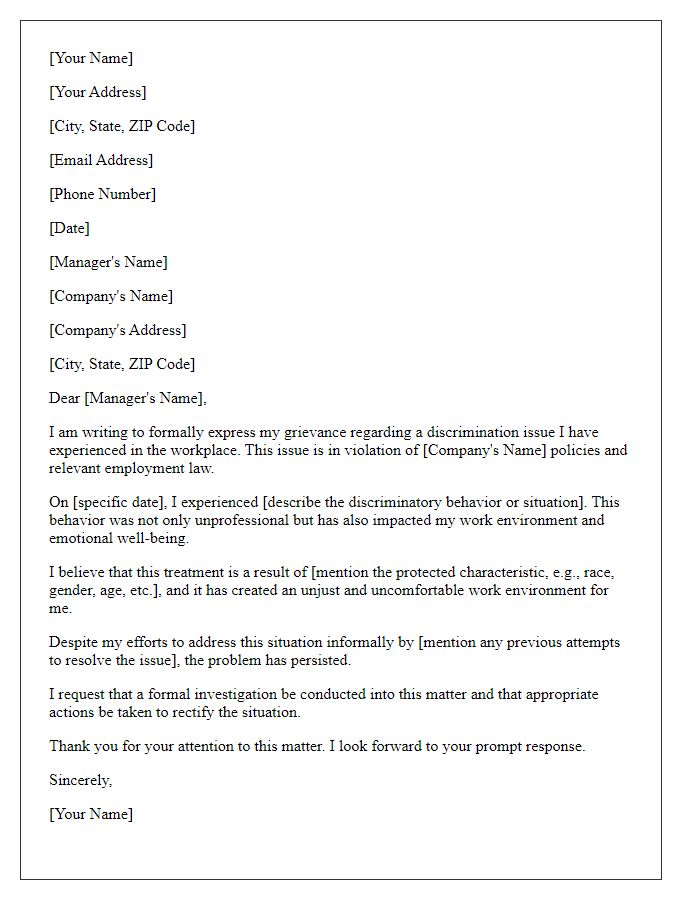
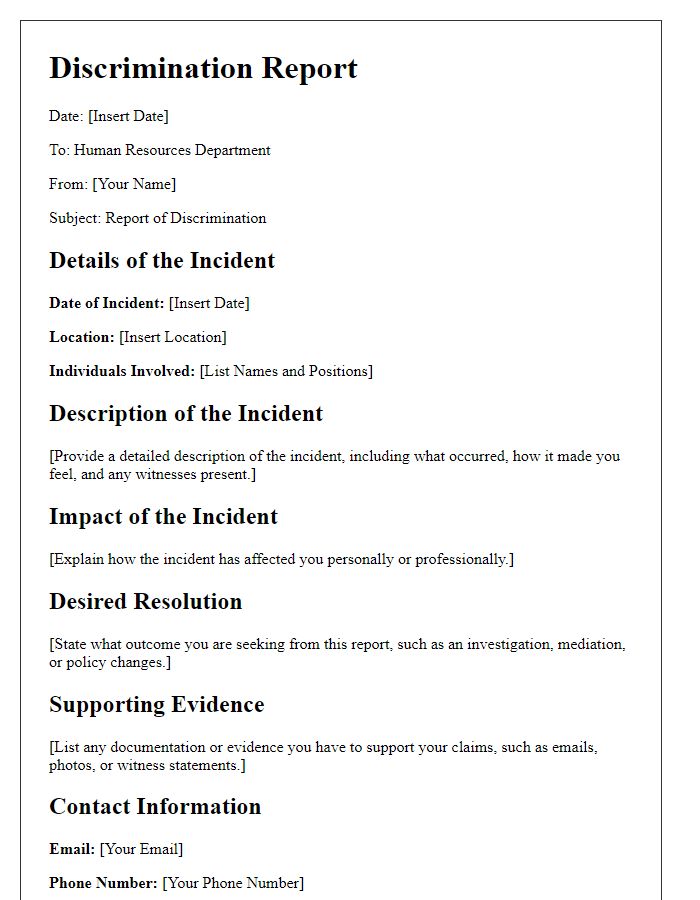
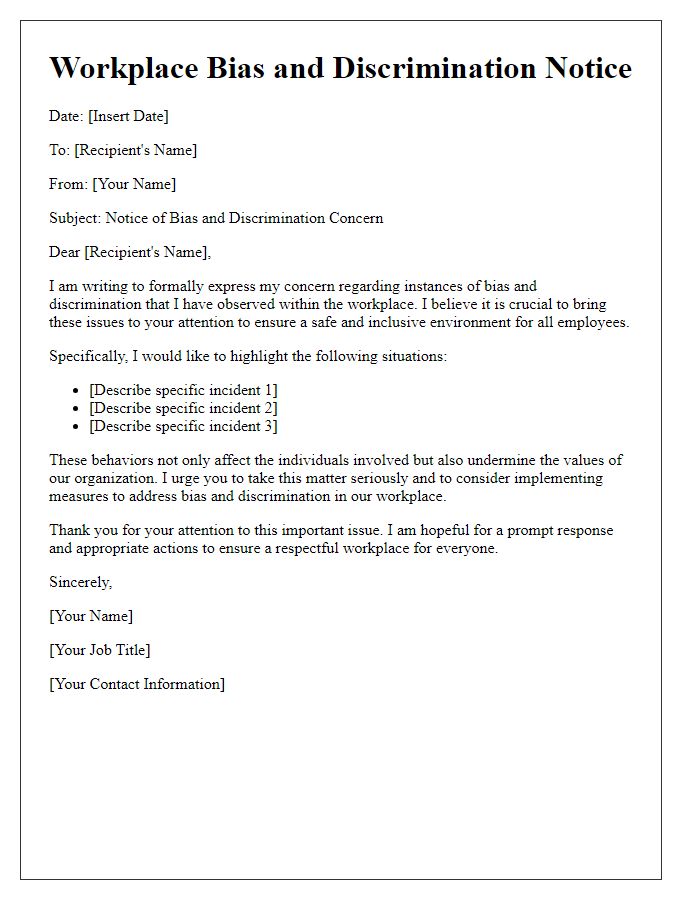
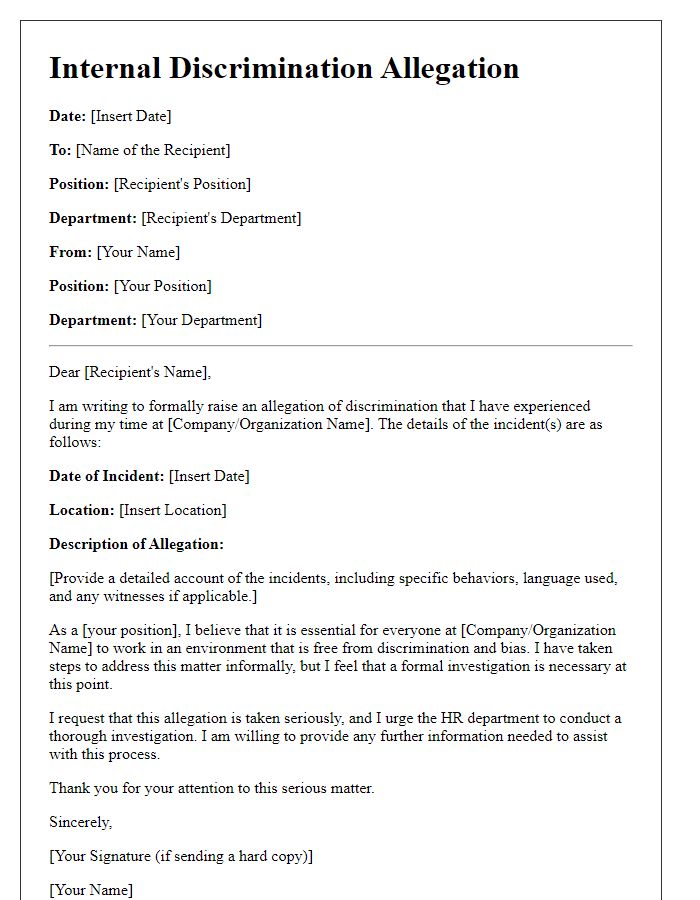
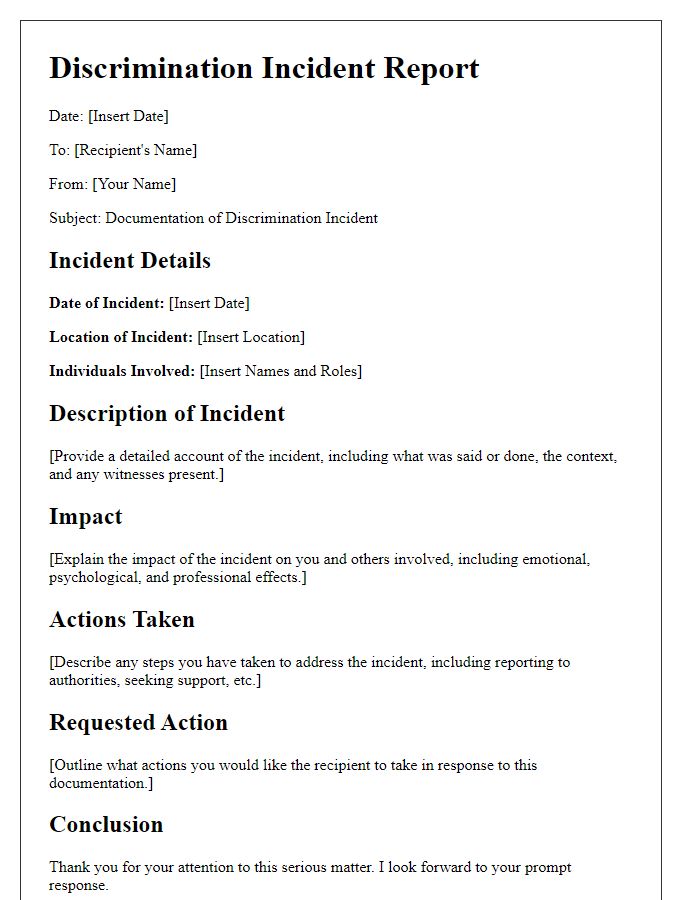
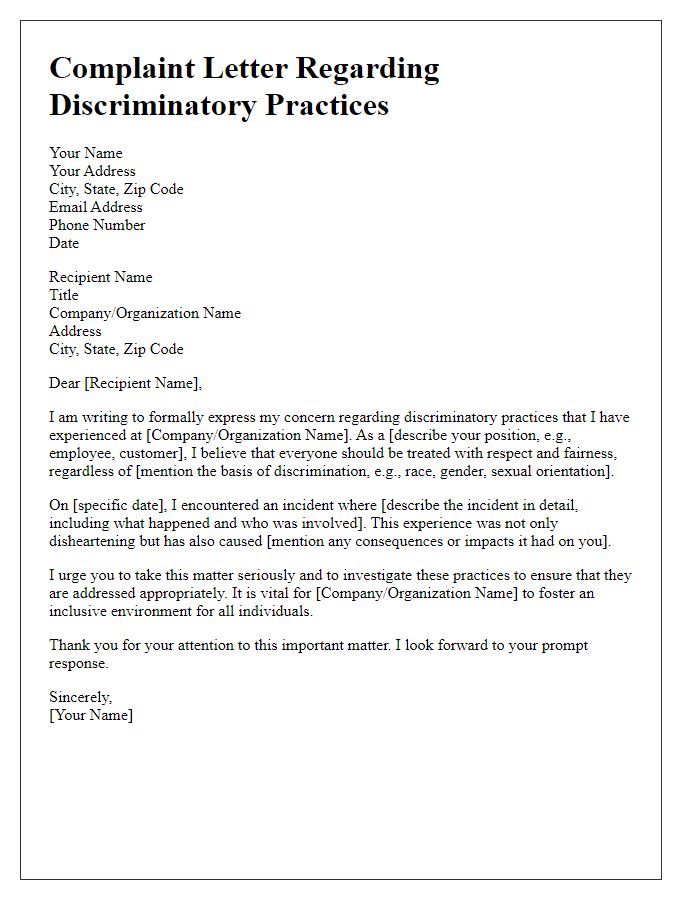
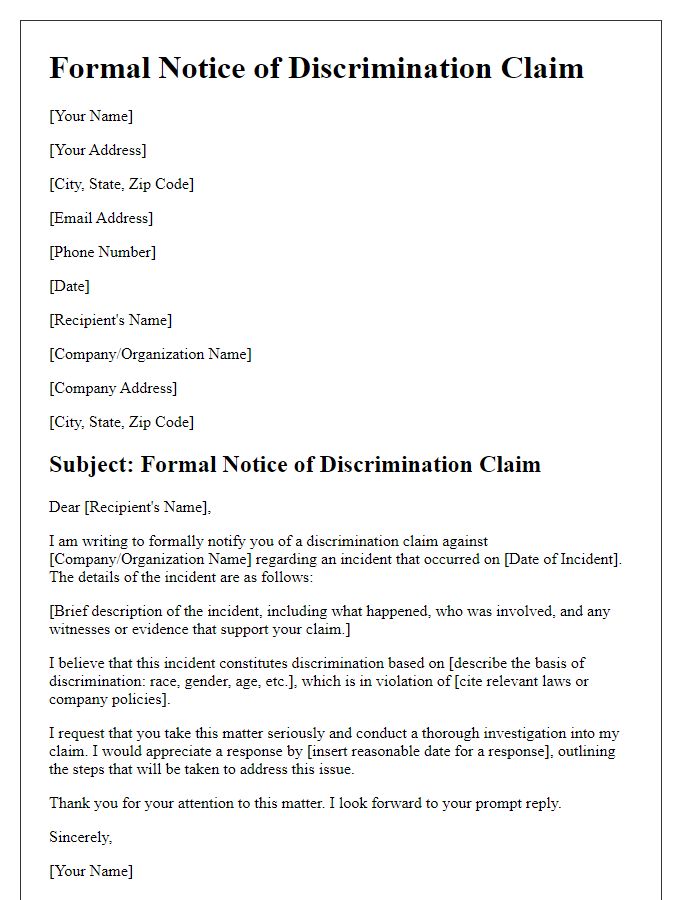
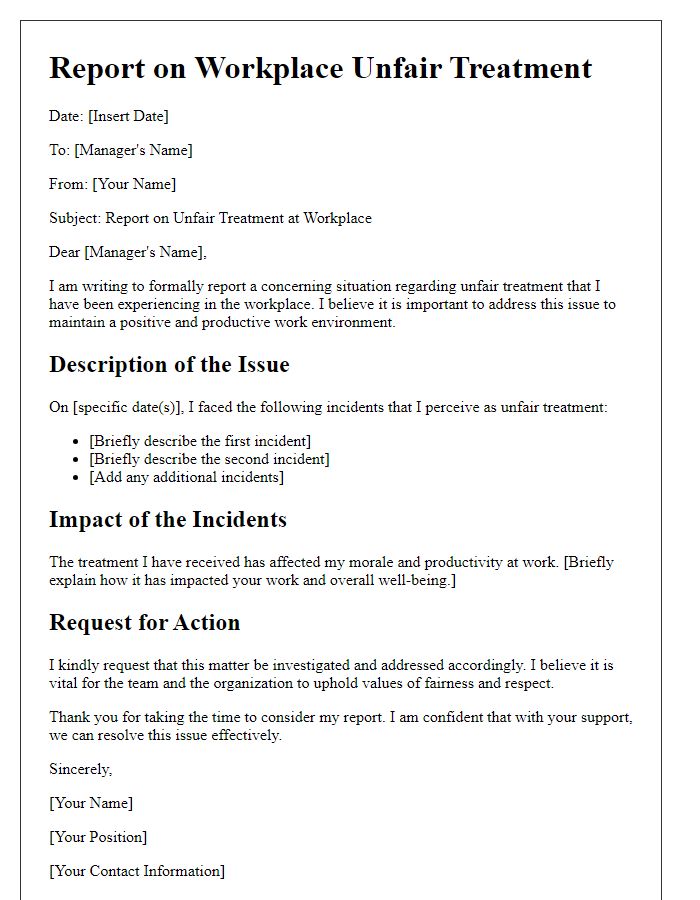
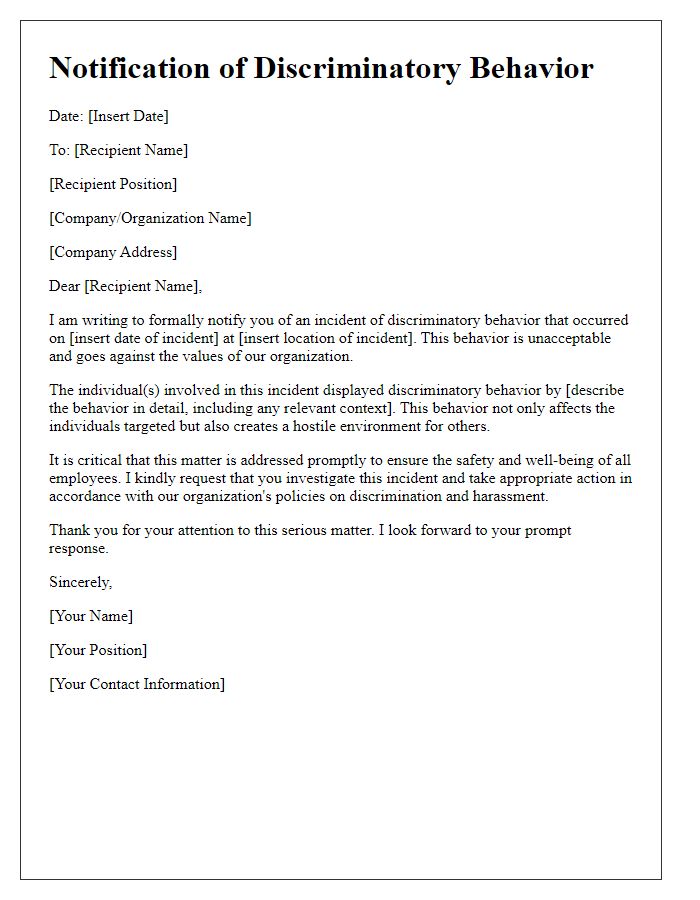


Comments